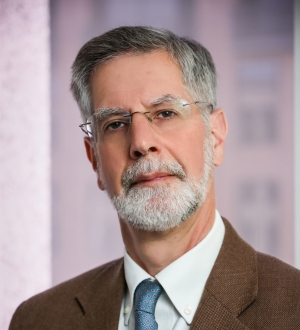Come back to law school with me at the University of Minnesota in the early 1990s. It’s bankruptcy class and Prof. Steve Nickles—a great teacher and a great person, all of whose classes I ended up wanting to take, despite the subject—is posing questions to a very-nervous fellow student. As for me, I’m petrified, which is normal; the questioning might come my way next, after all, and I have no idea what’s going on or what I’m really even doing here, and that might thus become clear to everyone. Some things might not change.
From what I recall, Prof. Nickles’ particular questions had to do with, well, okay, something about bankruptcy: I don’t know, there must have been some details in the case we all just supposedly read that were relevant to the application of some statute or regulation. Then …
“Why do we have bankruptcy?” he asked. “What if we just got rid of it?”
A little bit of a jolt there. I remember looking around and trying to communicate with my few friends through appropriate, tactically discreet facial-muscle movement. What the hell kind of question is that? This is bankruptcy class! Who is this guy?
Déjà vu
I thought of that moment while watching online the “Taxes and the Future of Philanthropy” conference at the Urban Institute in Washington, D.C., earlier this week. Jointly organized by the Urban-Brookings Tax Policy Center and the American Tax Policy Institute, the event convened experts to explore difficult challenges facing the philanthropic sector—including recent harsh criticism of and popular lack of trust in it. The treatment of tax-deductible contributions is changing, and the activities of tax-exempt organizations of all kinds are under increased scrutiny, as the qualified experts discussed.
It was at the end of the first session, on “Oversight of Nonprofits.” It’s always at the end of a session, isn’t it?—usually just after the moderator says, “Okay, we have time for one more.” Then … Howard Gleckman of the Tax Policy Center had a question from the audience for the well-credentialed panel.
“Do you think we should just get rid of the deduction, get rid of the exemptions, and get the IRS out of this business?”
Jolt. What kind of question is that? At a conference on taxes and giving, no less. Who is this guy?
Hmmm
Gleckman is a senior fellow of the Tax Policy Center and edits the TaxVox fiscal-policy blog and The Daily Deduction news summary. Like Prof. Nickles’, his unexpected, foundational query—at a little after 1:10 into the video available at the conference link, and flagged by Urban’s Benjamin Soskis on Twitter—is a great one, from which we should all try to benefit.
[caption id="attachment_71186" align="alignnone" width="300"] Gleckman[/caption]
Gleckman[/caption]
What is the point of all this? What are we trying to do here? What were we trying to do when we started? What were we saying to each other and ourselves then, whether we were actually part of the “we” then or not? How are we doing, if held to the originally stated purpose or purposes? If things have changed, why? Should they have? Should they be changed back? Can they? How?
Really.
This are pretty much timeless questions, of course—but given the current criticism and teeth-gnashing tumult over grantmaking and -getting, they’re actually quite timely ones, too. The benefit of the questioning is in arriving at the answering, however slowly or disagreeably or doubt-filled or not.
It sure seems a good opportunity now to seriously re-ask them, if even only as the “thought experiment” that Wiliam C. Dennis once labeled such an exercise while looking into “the institutional setting of tax-exempt philanthropy, with improvements in mind” for Conversations on Philanthropy in 2012.
In this context as in others—as known by Nickles, Gleckman, and Dennis—it’s healthy to properly test assumptions behind and arguments for “first principles,” to re-articulate their justifications and defenses, to wonder about the effectiveness and fairness of policies and practices pursued in implementing them. If the answers are basically “re-answers,” that would be fine. Some things might not change. They may even be better than the first time. We should all welcome the exercise. Or, maybe some things should change.
What’s going on? What are we doing here?
Why do we have bankruptcy?